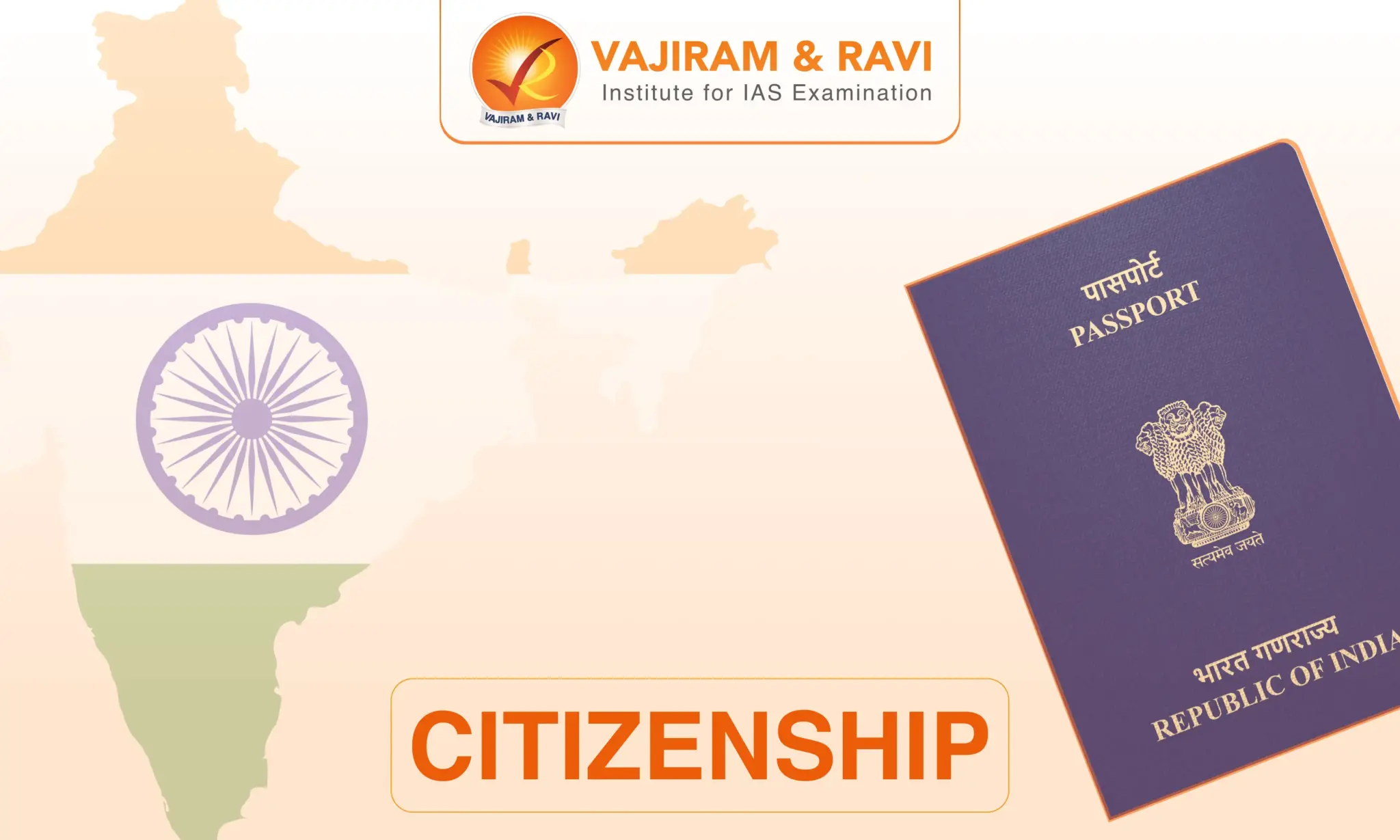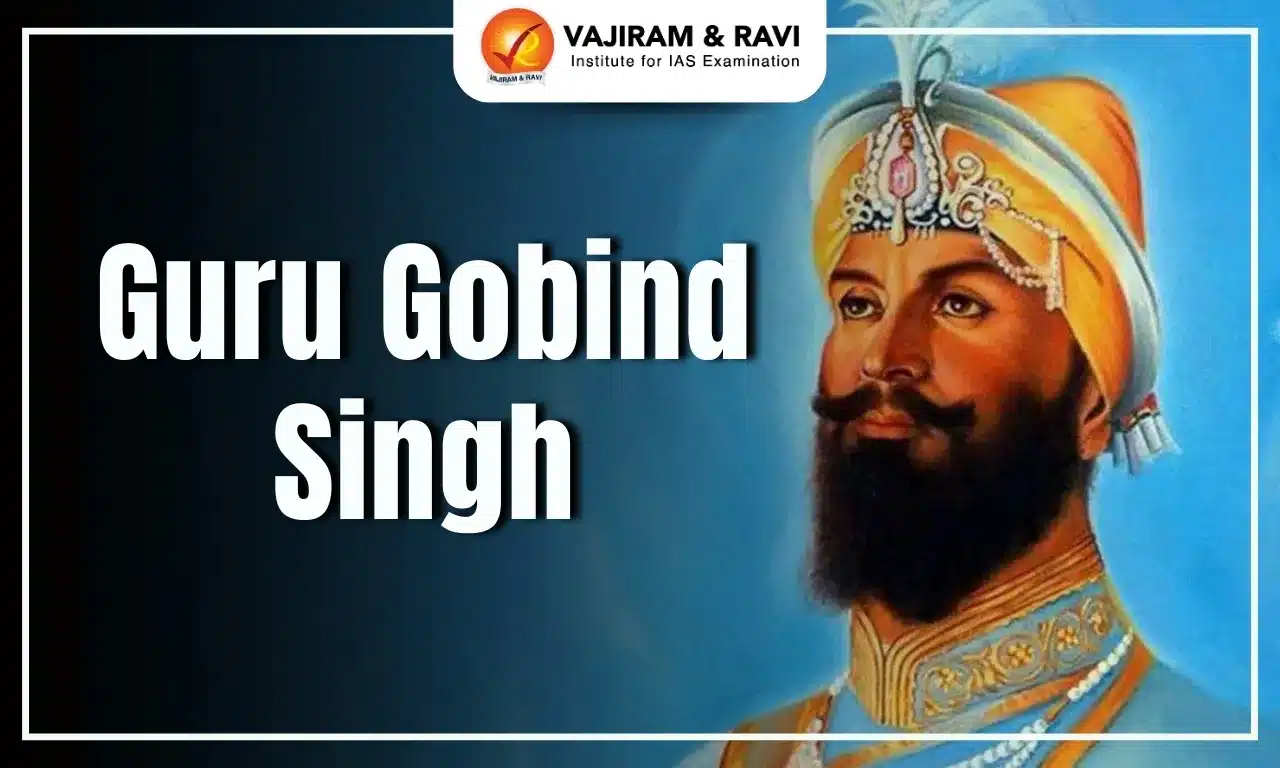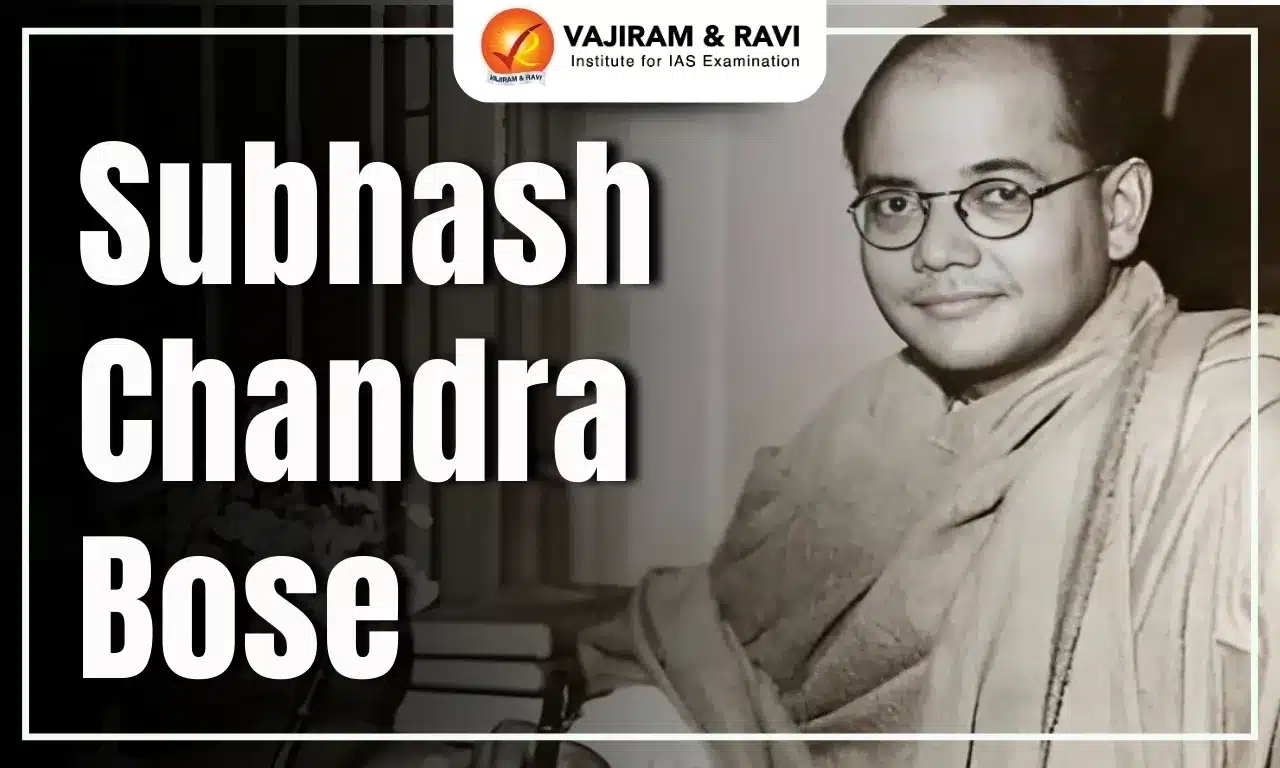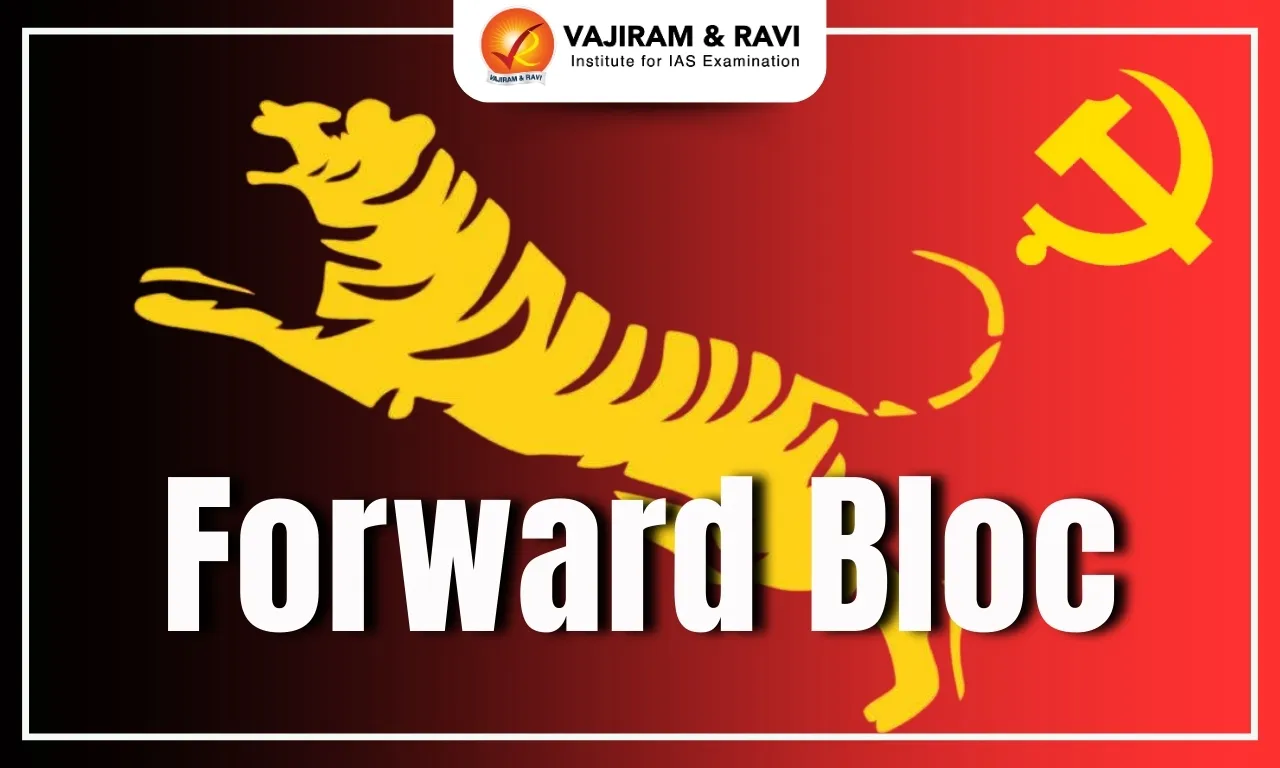Citizenship is the status of a person who is recognized through custom or law as a legitimate member of a sovereign state or nation. A nation grants certain rights and privileges to its citizens. The Indian Constitution establishes a single citizenship for all of India. Although the term citizenship is not officially defined in the Constitution, Articles 5-11 outline the framework for citizenship at the time of commencement of the Constitution.
The Citizenship Act, of 1955deals with matters relating to the acquisition, determination, and termination of Indian citizenship after the commencement of the Constitution.
About Indian Citizenship
The Constitution established a uniform type of citizenship known as national citizenship, eliminating the need for distinct state-based citizenship.
- Citizen of India: Every person who was domiciled in Indian territory at the time of the Constitution’s commencement (January 26, 1950) and (a) was born in India, (b) either of his or her parents was born in India, or (c) had been ordinarily resident in India for at least five years became an Indian citizen.
- Citizens and non-citizens (aliens): The population of a state is divided into two categories:
- Citizens are full members of the Indian State and owe allegiance to it. They enjoy all civil and political rights.
- Aliens, are the citizens of some other state and hence, do not enjoy all the civil and political rights. They are of two categories:
- Friendly aliens are citizens of countries that have friendly relations with India.
- Enemy aliens are subjects of the country at war with India.
- Rights granted to Citizens of India:
- Article 15: Right against discrimination on grounds of religion, race, caste, sex, or place of birth.
- Article 16: Right to equal opportunities in public employment.
- Article 19: Right to freedom of speech and expression, assembly, association, movement, residence and profession.
- Articles 29 and 30: Cultural and educational rights.
- Right to vote and right to contest elections.
- Eligibility to hold certain public offices, such as President of India, Vice-President of India, etc.
- Duties of Citizens: They are obligations of citizens to carry certain duties. The Indian constitution in Part IV-A outlines 11 Fundamental Duties to promote patriotism and strengthen unity among its citizens.
- Single Citizenship: Despite its federal structure, India does not provide dual citizenship, unlike the U.S.A. There is only single citizenship i.e. Indian citizenship. However, the Indian Constitution does not define citizenship.
- National Register of Citizens (NRC): The NRC is the register containing names of Indian citizens. The only time the NRC was prepared was in 1951 by recording particulars of all the persons enumerated during the 1951 Census.
- NRC in Assam: At present, only Assam has such a register. The citizens’ register sets out to identify foreign nationals in the state that borders Bangladesh.
Citizenship Provisions (Article 5-11)
The Constitution deals with citizenship from Articles 5 to 11 under Part II. The Indian constitution doesn’t prescribe a permanent provision relating to citizenship in India.
- It exclusively identifies those who became citizens of India on its inception (January 26, 1950).
- It does not address the issue of acquiring or losing citizenship after its inception.
- It authorises Parliament to enact legislation to address such issues as well as any other citizenship-related issues.
- As a result, the Parliament enacted the Citizenship Act of 1955, which has been revised from time to time.
- The latest constitutional amendment was in the 2019, Citizenship (Amendment) Act (CAA) of 2019, which aims to grant citizenship to illegal migrants from Afghanistan, Bangladesh, and Pakistan who belong to the Hindu, Sikh, Buddhist, Jain, Parsi, and Christian faiths.
- Articles 5-11 of the Indian constitution are as follows:
| Article 5 | – Citizenship at the commencement of the Constitution.
– A person born in India or either of the person’s parents was born in India or the person must have been an ordinarily resident in the territory of India for not less than five years immediately before the commencement of the constitution. |
| Article 6 | – Certain persons who migrated from Pakistan to India have citizenship rights. |
| Article 7 | – Citizenship rights of certain migrants to Pakistan. |
| Article 8 | – Certain persons of Indian origin who live outside of India have citizenship rights. |
| Article 9 | – Persons voluntarily acquiring citizenship of a foreign State not to be citizens. |
| Article 10 | – Continuance of the rights of citizenship. |
| Article 11 | – Parliament must govern the right of citizenship through law. |
Acquisition of Citizenship
The acquisition and termination of Indian citizenship is governed by the provisions of the Citizenship Act, 1955, and Citizenship Rules, 2009. The following are the ways to acquire Indian citizenship.
| By birth | – If a person is born in India and both the Parents are Indian or one of the parents is Indian and the other one is not an illegal Immigrant. |
| By descent | – Individuals born outside India, if both or either parent is an Indian citizen and not an illegal migrant, are considered Indian citizens by descent if their birth is registered at an Indian Mission/Post abroad within one year.
– After one one-year period of birth, permission of MHA is required. |
| By registration | – For individuals of Indian origin who have been resident in India for seven years, resided in any country outside India, are married to a citizen of India, and have been an OCI Cardholder for five years. |
| By naturalization | – The Central Government may, if satisfied that the applicant is qualified for naturalization under the provisions of the Third Schedule, grant him a certificate. |
| By incorporation of territory (Section 7) | – If any territory becomes a part of India, the Central Government, may by orders, specify the persons who shall be citizens of India by reasons of their connection with that territory, and those persons shall be citizens of India as from the date to be specified in the order. |
| Special provisions under the Assam Accord | – The Citizenship (Amendment) Act, of 1985, clarified citizenship for Indians who arrived in Assam before January 1, 1966, and have been residents there since then. Those found as foreigners after January 1, 1966, but before March 25, 1971, must register themselves. |
Loss of Citizenship
The Citizenship Act (1955) stipulates three means of losing citizenship, whether gained under the Act or before it under the Constitution, that are: renunciation, termination, and deprivation.
- Renunciation: Any Indian citizen can renounce his/her citizenship by making a declaration as per Citizenship Rules, 2009. However, a child may, within one year after attaining full age resume Indian Citizenship.
- According to government data, over 16 lakh Indians have renounced their Indian citizenship since 2011 including 2,25,620 people in 2023.
- Termination: If an Indian citizen willingly acquires citizenship in another nation, his or her Indian citizenship is terminated. This provision is not applicable during times of war.
- Deprivation: It is a compulsory termination of citizenship in India by the central government. A citizen of India by naturalization, registration, domicile, and residence may be deprived of his citizenship under certain conditions such as obtaining the citizenship by fraud, showing disloyalty to the Constitution of India, unlawfully communicating with the enemy during a war, etc.
Overseas Citizenship of India
Overseas Citizenship of India (OCI) is a form of permanent residency available to people of Indian origin and their spouses. It grants them the ability to live and work in India indefinitely. However, OCI is not to be misconstrued as ‘dual citizenship’.
- Benefits: OCI status allows individuals certain privileges such as multiple entries into India without requiring a visa, the ability to own property in India, and the right to work in certain fields.
- However, OCI holders are not eligible to vote, hold public office, or acquire agricultural or plantation properties in India. It is designed to facilitate closer ties between the Indian diaspora and India.
- Renunciation of overseas citizenship: Any OCI of full age and capacity makes a declaration renouncing his overseas citizenship of India. However, every minor child of that person registered as an OCI, shall thereupon cease to be an overseas citizen of India.
- Cancellation of registration as OCI: The Central Government may, by order, cancel the registration granted if the registration was obtained through fraud, a person showed disaffection towards the Constitution of India, engaged with the enemy during any war in which India may be engaged, etc.
- NRI: Non-Resident Indian Indian origin who reside outside of India for employment, business, or other purposes, but maintain strong ties to India, often including family, property, or investments.
- PIO: A PIO is a person who was an Indian national or whose ancestors were Indian nationals and who now holds citizenship/nationality in another country, i.e. he/she has a foreign passport.
Citizenship UPSC UPSC PYQs
Question 1: With reference to India, consider the following statements: (UPSC Prelims 2021)
- There is only one citizenship and one domicile.
- A citizen by birth only can become the Head of State.
- A foreigner once granted citizenship cannot be deprived of it under any circumstances.
Which of the statements given above is/are correct?
- 1 only
- 2 only
- 1 and 3
- 2 and 3
Answer: (a)
Last updated on April, 2025
→ UPSC Notification 2025 was released on 22nd January 2025.
→ The UPSC Vacancy 2025 were released 1129, out of which 979 were for UPSC CSE and remaining 150 are for UPSC IFoS.
→ UPSC Admit Card 2025 is expected to release in first week of May for CSE Prelims Exam 2025.
→ The UPSC Prelims 2025 is scheduled to be conducted on 25th May 2025 and UPSC Mains 2025 will be conducted on 22nd August 2025.
→ Apply once through it and aspirants can apply for various government exams conducted by UPSC.
→ The UPSC Selection Process is of 3 stages-Prelims, Mains and Interview.
→ UPSC Result 2024 is released with latest UPSC Marksheet 2024. Check Now!
→ UPSC Toppers List 2024 is released now. Shakti Dubey is UPSC AIR 1 2024 Topper.
→ Also check Best IAS Coaching in Delhi
Citizenship FAQs
Q1. What are the ways to acquire citizenship in India?+
Q2. Who is called the first citizen of India?+
Q3. What are the provisions of the Citizenship (Amendment) Act, 2019?+
Q4. Who is exempted from the Citizenship (Amendment) Act, 2019?+
Q5. Will the applicant lose his citizenship after registering as an OCI?+
Tags: citizenship quest















